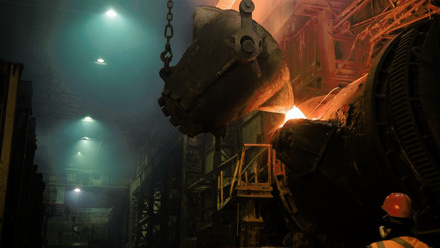Embracing diversity within the Foundation Industries
How can the foundation industries attract and retain a diverse workforce?

International Women’s Day earlier this year was a chance to give a huge shout out to women working in the Foundation Industries (FIs) across metals, chemicals, glass, ceramics, paper and cement. There are a lot of them – but compared to men, there are not enough.
The annual day sparked media coverage highlighting things many of us already know. Women remain widely underrepresented in science, technology and engineering roles, and figures show the gender pay gap is only narrowing slowly.
Earlier this year, the UK Chancellor, Jeremy Hunt, overturned a law that originally meant individuals investing in a business via an angel network must earn more than £170,000 to qualify, up from £100,000 previously.
Women-led start-ups and businesses only receive 2% of venture capital investment, according to the British Business Bank, meaning that they rely disproportionately on angel funding. Similarly, women founders are more likely to receive funding from women investors, according to research published in Harvard Business Review.
This law, if not overturned, would have made attracting early investment even harder for women-led businesess, especially given the smaller number of women (compared to men) who in fact earn upwards of £170,000. In reality, this would have meant no female angel investors in the Northeast of England, so the U-turn is to be welcomed.
Indeed, the Northeast is home to the first incubator and accelerator for Foundation Industries Ventures (FIVe). It will support start-ups and spin-outs, and develop new materials, processes and technologies that will help the FIs cut carbon emissions and reach net-zero.
But there’s still much more that needs to be done to encourage, support, attract and retain women in the FI workforce, and also to improve the diversity of other underrepresented communities, and ensure inclusion and equitable opportunities for all.
In 2021, the Enterprise Research Centre, on behalf of UK Research and Innovation, researched equity, diversity and inclusion (EDI) in the FIs. Assessing age and gender, their key findings include:
- The six sectors are dominated by male employees at almost all levels compared to the wider economy.
- Few businesses with women owners or partners.
- A quarter of businesses have no employees under the age of 25.
- Women are typically engaged in non-production roles.
- Women are more likely to work in chemical, ceramics and paper compared with glass, cement or metals.
- Directors across the sectors are typically aged 50-plus.
On the face of it, these headlines can make for grim reading, but it is not all doom and gloom. The research itself signals a change, as currently there are huge gaps in knowledge and knowing what you are dealing with is the first step to addressing it.
The government and industry are now realising the challenges and barriers that need to be overcome to create more attractive and inclusive workplaces. And the industries know that increased diversity will help them transform, think differently and foster new ideas.
People therefore need to know what EDI means and how they can approach it positively in their workforce.
Industry used to be very much about place – the town, city, region where it originated, and the local people worked there.While being rooted to a place is a good thing, as businesses evolve, we need to retain what’s important of the local heritage and also make businesses more sustainable.
New businesses are bringing with them new attitudes and behaviours. They want to make those changes but often don’t quite know what to do. The team at the Transforming the Foundation Industries Research and Innovation Hub (TransFIRe) has launched an ever-evolving EDI playbook of free resources and case studies to support organisations.
The Materials Processing Institute, for example, has transformed workplace culture by incorporating lived experience and employee voice in shaping policies. While manufacturer Encirc is working to build an inclusive workforce, such as through a Women in Manufacturing Charter to use gender-neutral language and measures to eliminate unconscious bias in recruitment.
Change can be slow, particularly in large-scale organisations, and that is why it is important to drive change by businesses working together and sharing best practice and ideas. Incubators and support for start-ups and new businesses can be so influential to change industry culture. FIVe seeks to accelerate innovation but also develop purpose-led businesses with inclusion at their heart, providing essential support services, including HR.
Younger people now place more importance on values and purpose than hierarchy and inflexible working conditions. FIVe’s aim is to embed a culture that fosters excitement and attracts talent into the FIs. It is about disruption at grassroots level that will one day spread into every business in every sector of the FIs.






